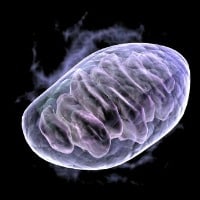The two pathways have been implicated separately by previous studies in regards to bipolar disorder, but there wasn’t an association established between serotonin levels and mitochondrial dysfunction.
Mitochondrial damage in patients with bipolar disorder has been identified in studies conducted using brain imaging, as well as close to one fifth of individuals with mitochondrial disease also having bipolar disorder.
Drugs that alter serotonin levels are effective at treating the condition, showing that altered serotonin functioning has a role in bipolar disorder.
According to the researchers mitochondrial dysfunction alters activity of serotonergic neurons in bipolar disorder, this may be the first time that these two line of evidence have been linked, as published in the journal Molecular Psychiatry.
Mutations in ANT1 genes among patients with bipolar disorder were identified. Model mice were examined lacking in ANT1 in the brain only, compared with non-mutant mice the model mice missing ANT1 were not able to retain calcium, had leakier pores, and demonstrated less impulsivity in testing and their brains showed elevated serotonin turnover, which may be the outcome of a series of changes occuring with the loss of ANT1 resulting in damaged mitochondria. Enriched serotonergic activity may impair mitochondria even further in a vicious circle. Serotonergic neurons were found to be deteriorated in a region of the brain affected by Parkinson’s disease called the brain dorsal raphe, suggesting it may have roots in mitochondrial dysfunction as well.
Bipolar disorder is not caused by ANT1 itself, rather it is associated with an increased risk for development of bipolar disorder, according to the researchers.
Findings imply that developing therapies to target underlying mitochondrial dysfunction may provide effective treatment for bipolar disorder in the future that are more beneficial than the current serotonin targeting drugs used.




